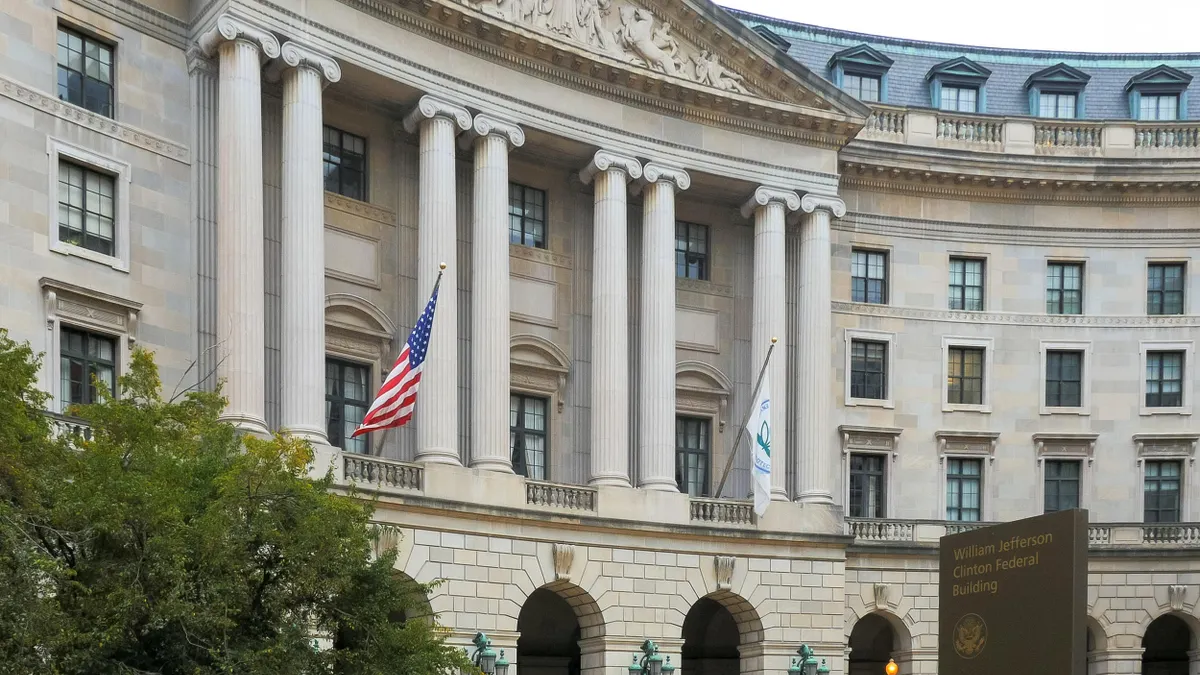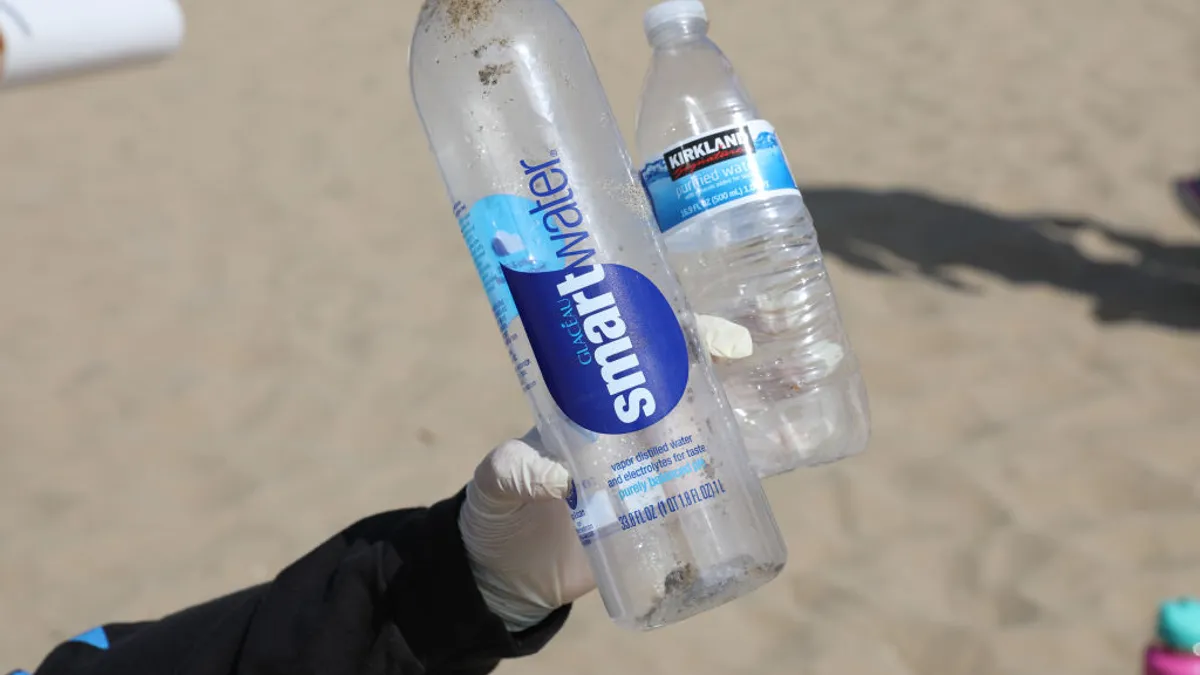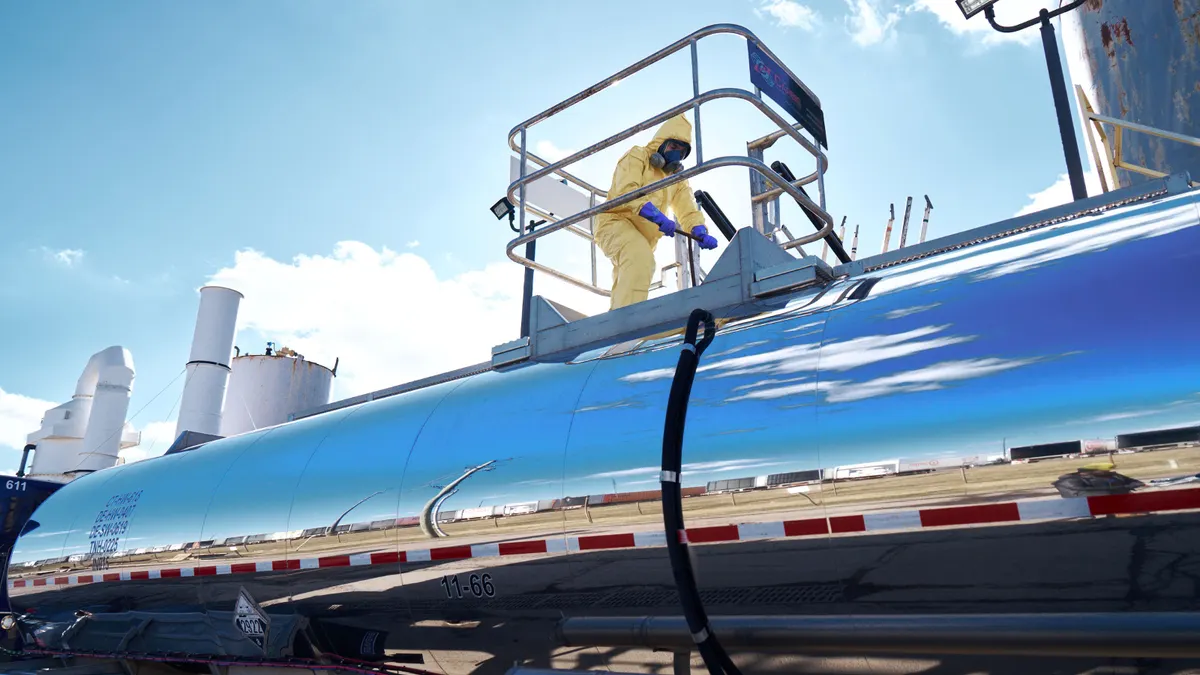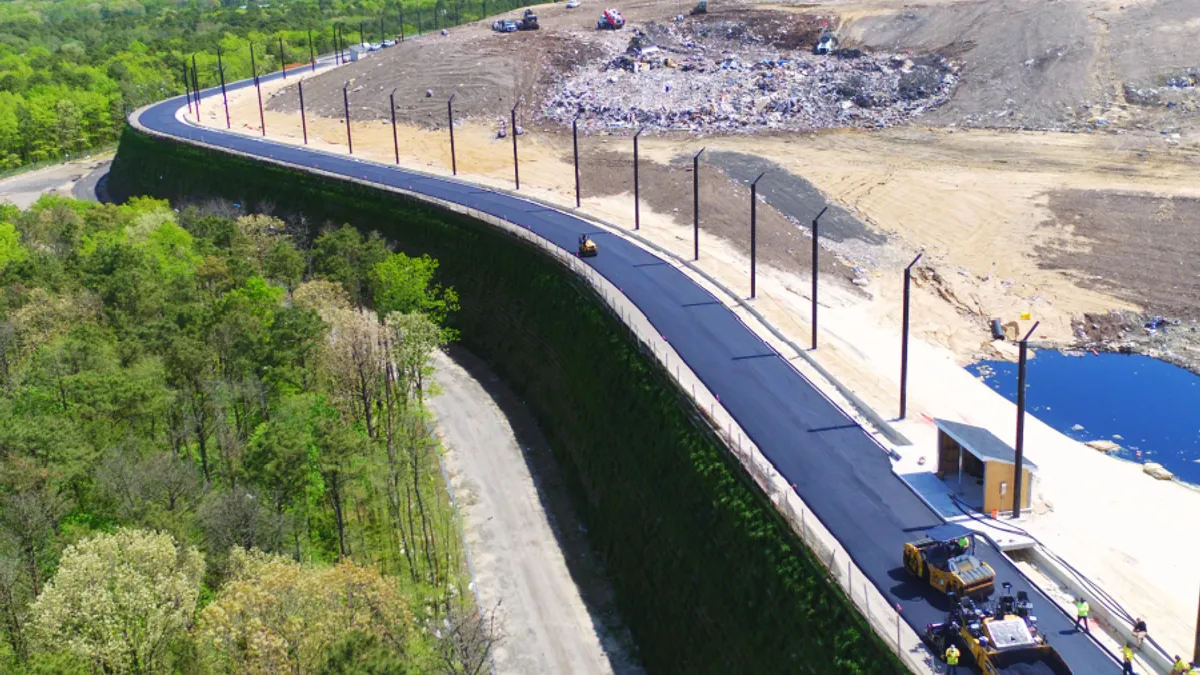While the concept of "friendly competition" is known to motivate a drive toward higher success—most often in sports or teambuilding—the concept seems a bit foreign to the waste industry. So, with a desperate need for consumer education nationwide, why hasn't the industry leveraged friendly competition to boost initiatives such as increased diversion?
Zerocycle, a DC-based software analytics startup for the waste and recycling industry, has risen to that challenge.
The company's aim is to provide cities and its residents with statistics, visuals, rankings, and other insights on local recycling that will help foster more conscious behaviors and a competitive spirit among neighborhoods looking to recycle more.
"I always believe there are ways to build profitable businesses that are also doing good for the world," said CEO Hunter Hayes in an interview with Waste Dive. Hayes' inspiration for starting Zerocycle sprouted from an interest in how sustainability is impacting our world, and he believed there was an opportunity in the industry to make a company like Zerocycle work.
And now, after endless work and determination, the startup has officially announced the launch of its Resident Engagement Platform pilot program in four major cities: Salt Lake City, UT; Buffalo, NY; Cincinnati, OH; and Fremont, CA.
Tackling recycling city-by-city
Zerocycle's Resident Engagement Platform is centered around one crucial component: Neighborhood Waste Reports. These reports offer visually appealing status updates to residents across the city regarding recycling progress and ranking among other neighborhoods.
Hayes explained that, depending on which waste diversion issues the city is trying to tackle, Zerocycle can create a sort of "heat map" that will identify how well each subdivision is doing with waste disposal, recycling, composting, or other waste operations. For the company's initial pilot program in Salt Lake City, the reports focused on metals and aluminum cans, with the City having the freedom to shift focuses later on.
"Each city that we've gone into so far has been very different. Each city operates in a very different way," said Hayes. He explained that while gathering the city's recycling data is often the most difficult challenge to implementing the program, some cities have data readily available that hasn't before been utilized in an efficient way. Once initial data is collected, then reports can start being delivered to the residents of the city.
The benefits of studying behaviors
Each month, residents receive a mailed report, white labeled from the city, detailing exactly how their neighborhood is performing in comparison to other neighborhoods in the area.
"We're getting in front of people's faces in a way that they haven't had before which is, 'This is how well you're performing,'" said Hayes. He used the term "normative comparison" to explain the psychological concept behind Zerocycle's aim to drive social change.
The inspiration for such a concept came from California State University-San Marcos professor of psychology Wesley Schultz, Ph.D., who said in a statement, "Zerocycle is using well-established principles from behavioral science to motivate residents to recycle. It’s clear that people want to recycle, but communications with just the facts aren’t enough ... Our research has shown that providing residents with comparisons to their neighbors, or to other parts of their city, can result in longlasting changes in recycling behavior."
And while it seems as though some residents would look through Zerocycle's efforts and quickly become unengaged with a practice that can be seen as tedious, Hayes said the company has received very little pushback. As of late May, only 3 of more than 2,000 program participants had opted out of receiving the report.
"But we've also seen more of the reverse, which is 'Wow, this is interesting information, thanks for sharing," said Hayes.
The future of Zerocycle
While Zerocycle is still only getting its feet off the ground, the innovative nature of the company will likely drive the industry in a direction that it has not yet been before.
"We're taking on this industry that really hadn't seen a lot of innovation in the software front," said Hayes. He hopes that in the near future, the company will be ready to launch an online portal where residents can access their Zerocycle statistics instead of receiving a paper copy in the mail. He also noted to Waste Dive that there is potential for Zerocycle to expand to commercial clients, further driving the competition of waste diversion.
Additionally, the company hopes to expand participation to four more cities and is looking for launch partners, which are intended to be announced later this year.



















